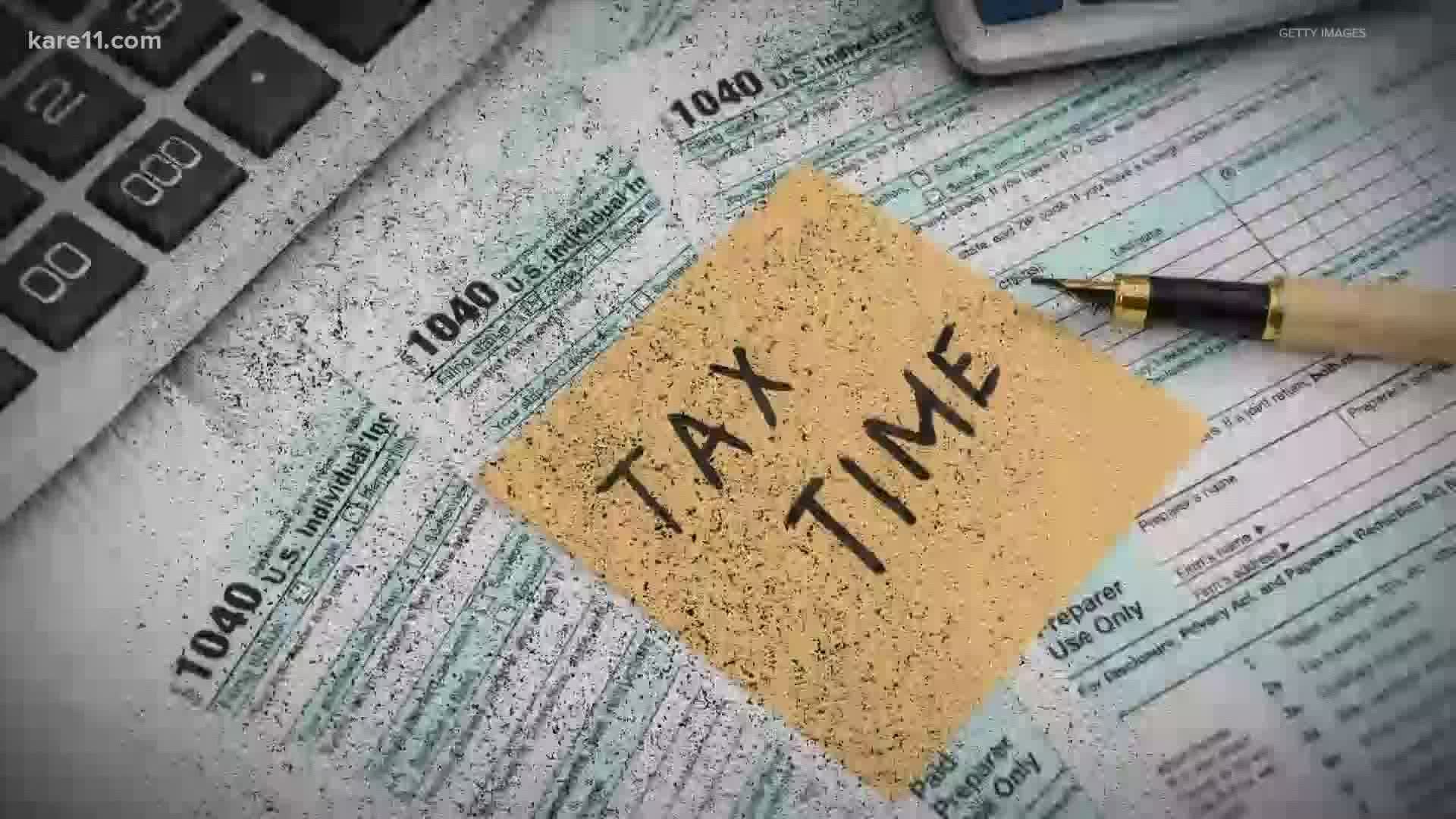MINNEAPOLIS, Minnesota — The deadline to file 2019 taxes is coming up. Because of COVID-19, the Treasury Department postponed the deadline from April 15 to July 15.
"I'm surprised by how many people are still asking for tax documents and getting things to their certified public accountants," said Laura Bereiter, director of tax and financial planning for White Oaks Wealth Advisors and a member of the Minnesota Society of CPAs.
Bereiter said it's important to file even if taxpayers are unable to pay.
"So the IRS and a lot of State Departments of Revenue will allow for payment plans to be negotiated but it's still important to get your filing done and then address any inability to pay as soon as you can after that," Bereiter said.
As usual, taxpayers can request an extension to file from the Internal Revenue Service. That'll give you until October 15 to file.
"It's not an extension to pay your taxes. So you still need to make a payment by July 15," Bereiter explained.
If you're waiting for a refund, you could get more money. The IRS is paying interest on 2019 refunds issued after April 15. Taxpayers will earn 5% interest on refunds issued between April 15 and June 30, while it's 3% for those between June 30 and September 30.
According to the IRS, unclaimed income tax refunds worth more than $1.5 billion await an estimated 1.4 million taxpayers who did not file a 2016 federal income tax return. Taxpayers who did not file a 2016 tax return and are owed a refund have until July 15 to do so. After that, any unclaimed money from that year becomes the property of the U.S. Treasury.
If you still need to file, Bereiter said it's important to give your tax preparer more information than you ever think they could need.
"It's their job to sift through everything and decide what is going to be applicable to your tax situation. So don't withhold information from them. Assume they need everything and give them that. That's the whole 'here's the box of receipts' mentality," said Bereiter, who has been meeting with clients virtually.
We're also halfway through 2020, and Bereiter said it's a good time to touch base with your tax preparer about this year.
"Start talking about what planning you could do for 2020 in the next six months that we have and if there's any proactive ideas that they have to be strategic in these next several months as we deal with likely another legislative package that will come through and the impact of that and the impact of the CARES Act on many tax payers, too," Bereiter said.
The IRS recommends taxpayers file electronically and choose direct deposit if they're expecting a refund.
You can find more last-minute tips from the IRS, here.

